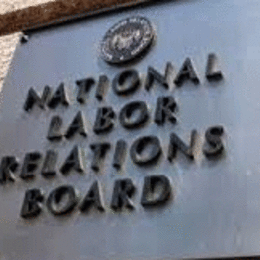Newly released research from leading franchise information and analysis provider FRANdata indicates that a recent National Labor Relations Board (NLRB) ruling has put an estimated 40,000 small franchise businesses at risk. The ruling appears to jeopardize the ability of small business franchise owners to schedule, hire and set salaries for employees.
FRANdata's research also illustrated how the NLRB ruling threatens a significant percentage of the estimated 600,000-plus jobs that are set to be created over the next two years. Small business franchise owners will suffer a loss in equity position, and the resulting higher costs will lessen operating margins and risk profitability and possibly survivability. Naturally, some of these added expenses will be passed down to customers, which will make small businesses franchises less competitive.
Darrell Johnson, FRANdata's Chief Executive, stated the company's research proved the NLRB ruling would have a devastating impact on franchise small business owners because it would remove certainty around their operating models, costs and the rules they work under to conduct their business.
These franchise owners, Johnson noted, like all small businessmen and women, invest their savings and time into a business that has a place in their local communities. Johnson also said the ruling is setting a dangerous precedent that is incredibly destructive to the business model for franchises and thousands of small businesses nationwide. He pointed out that FRANdata's survey results show the ruling is already affecting expansion plans.
In August, the NLRB made a ruling in the decision known as "Browning-Ferris Industries" that said a small business franchise could be held as a "joint-employer" with the franchise who lends its marketing and brand name to the small business. The ruling overturned five decades of legal and regulatory precedent because it considered a company as a "joint-employer" even if that company only has potential or indirect control over employee activities.
With the loss of the operating efficiencies generally associated with a franchise business model and rising costs, franchises themselves will become less attractive investments for entrepreneurs who are looking to start new businesses. Overall, this will have a negative impact on contributions to the US GDP because of a decreased investment in new franchise businesses, negative valuations, an increase in franchise business failure rates, and a lower job creation rate in the franchise industry.
Currently, the US Small Business Administration guarantees more than 20 percent of the capital franchisees need annually; this funding could be jeopardized because of the NLRB's joint-employer ruling. This might lead to higher interest rates, cash drains from growing businesses, and an increased failure rate, especially when it comes to young businesses and start-ups.
Nearly all of the franchise owners who were surveyed by FRANdata expressed their concern that the ruling would increase the number of store closings, harm expansion efforts and remove much of a franchisee's control over hiring. In short, the joint-employer ruling could make the franchise model less attractive to entrepreneurs, resulting in a drop in franchise business equity values.


